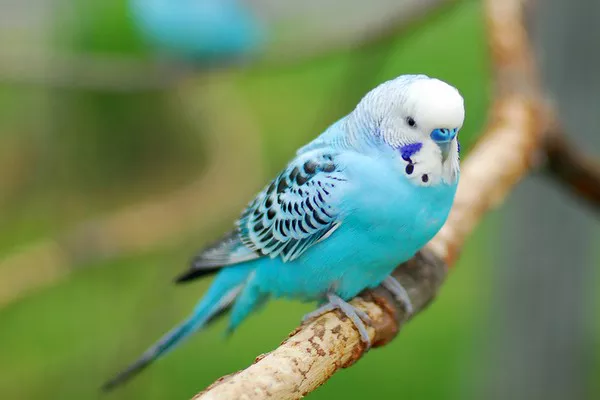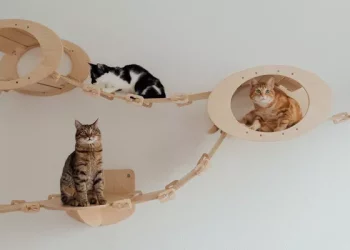The American Shorthair cat, known for its muscular build, playful personality, and adaptability, is one of the most popular and beloved domestic cat breeds. This breed is often chosen by pet owners for its friendly nature, low-maintenance grooming needs, and overall good health. However, like all cat breeds, American Shorthairs are prone to certain health problems. Understanding these potential issues is vital for prospective pet owners and those already owning an American Shorthair to ensure their pet’s well-being.
In this article, we will explore the common health problems faced by American Shorthairs, how to recognize the symptoms, and steps to take for prevention and treatment. By understanding these issues, pet owners can take proactive measures to help their cats live long, healthy, and happy lives.
Introduction to American Shorthair Cats
The American Shorthair is a breed of domestic cat that originated in the United States. Originally used as working cats on farms, they were valued for their hunting ability and natural instinct to catch rodents. Over time, the breed was refined and became a popular companion animal due to its calm temperament, loyalty, and ease of care.
American Shorthairs are medium to large-sized cats with a rounded body, short dense coat, and large, expressive eyes. They come in a wide variety of colors and patterns, including the iconic “tabby” pattern, but they can also be solid, bicolor, or even calico. Despite their independent nature, American Shorthairs are affectionate and often enjoy spending time with their human family members.
While the breed is generally healthy, as with all purebred animals, American Shorthairs can be prone to certain genetic and environmental health issues. Understanding these potential health problems is important for providing them with the best care possible.
Common Health Problems in American Shorthair Cats
1. Obesity
Causes:
Obesity is one of the most common health problems seen in American Shorthairs, primarily due to overfeeding and insufficient physical activity. American Shorthairs are known for their laid-back personalities and tendency to be less active than some other breeds, which can contribute to weight gain if their diet is not carefully controlled.
Symptoms:
- Weight gain
- Decreased energy or lethargy
- Difficulty breathing
- Difficulty grooming
- Increased risk of diabetes and heart disease
Prevention & Treatment:
To prevent obesity, it’s important to monitor your American Shorthair’s diet and provide a balanced, high-quality cat food. Portion control is key—feeding your cat the right amount of food for its age, weight, and activity level. Encouraging playtime and exercise through interactive toys and activities will also help maintain a healthy weight.
If your cat is already overweight, it’s essential to consult with a veterinarian for a tailored weight loss plan. Gradual weight reduction, combined with a proper diet and regular exercise, is the best approach to managing obesity.
2. Hypertrophic Cardiomyopathy (HCM)
Causes:
Hypertrophic cardiomyopathy (HCM) is a genetic heart condition that causes the walls of the heart muscle to thicken, which can impair the heart’s ability to pump blood effectively. While it can affect any breed, HCM is most common in certain cat breeds, including the American Shorthair.
Symptoms:
- Lethargy
- Rapid or labored breathing
- Loss of appetite
- Weight loss
- Sudden collapse or fainting
Prevention & Treatment:
Unfortunately, HCM is a hereditary condition, and there is no cure for it. Regular veterinary checkups, including heart evaluations, are essential for early detection. Treatment typically involves medications to manage symptoms and improve the cat’s quality of life, such as beta-blockers or angiotensin-converting enzyme inhibitors.
In some cases, veterinarians may recommend a special diet to support heart health. Additionally, avoiding stressful situations for your cat can help reduce strain on the heart.
3. Dental Issues
Causes:
Like many other cats, American Shorthairs can suffer from dental problems, such as periodontal disease, gingivitis, or tooth decay. Poor dental hygiene, genetics, and diet can all contribute to these issues. Since cats tend to hide pain, dental issues can go unnoticed for a long time.
Symptoms:
- Bad breath
- Red or inflamed gums
- Drooling or pawing at the mouth
- Difficulty eating or chewing
- Teeth discoloration or loss
Prevention & Treatment:
Routine dental care is essential to prevent dental issues in American Shorthairs. Regularly brushing your cat’s teeth with a cat-friendly toothbrush and toothpaste can help reduce plaque buildup. Dental treats or special dental diets are also available to promote oral health.
If your cat is showing signs of dental problems, it’s crucial to seek veterinary care. A professional dental cleaning and any necessary extractions may be required.
4. Kidney Disease
Causes:
Chronic kidney disease (CKD) is common in older cats, including American Shorthairs. While the cause of CKD is often age-related, it can also be influenced by other factors, such as genetics, dehydration, or high blood pressure.
Symptoms:
- Increased thirst and urination
- Weight loss
- Decreased appetite
- Vomiting or diarrhea
- Lethargy
- Poor coat condition
Prevention & Treatment:
Kidney disease cannot be cured, but early detection and management can improve your cat’s quality of life. Regular veterinary checkups, especially for older cats, are important for monitoring kidney function. A special diet formulated to support kidney health may be recommended, as well as medications to manage symptoms and blood pressure.
Providing your cat with plenty of fresh water and reducing stress can also help manage kidney disease. If your cat is diagnosed with CKD, your veterinarian will help you develop a treatment plan to address the condition.
5. Joint Problems & Arthritis
Causes:
American Shorthairs, particularly as they age, can develop joint problems such as arthritis or hip dysplasia. Their muscular build, combined with the wear and tear of daily activity over time, can result in joint discomfort. Obesity can also exacerbate these issues by putting extra strain on the joints.
Symptoms:
- Limping or favoring one leg
- Difficulty jumping or climbing
- Stiffness, especially after rest
- Reduced activity or lethargy
- Changes in behavior (such as increased irritability due to pain)
Prevention & Treatment:
Regular exercise is important for keeping your American Shorthair’s joints healthy. Additionally, maintaining a healthy weight is crucial to avoid putting excess strain on the joints.
For cats with arthritis, your veterinarian may recommend joint supplements, pain relief medications, or anti-inflammatory drugs. In severe cases, surgical interventions may be necessary to improve mobility. Adjusting the home environment to provide easy access to food, water, and litter boxes can also help reduce strain on the joints.
6. Respiratory Problems
Causes:
Respiratory issues in American Shorthairs can be caused by a variety of factors, including allergies, infections, or environmental irritants. Upper respiratory infections (URIs) are common, especially in younger cats or those with weakened immune systems. Cats with respiratory issues may also be prone to asthma or other chronic conditions.
Symptoms:
- Sneezing or coughing
- Runny nose or watery eyes
- Labored breathing
- Wheezing or coughing fits
- Loss of appetite
Prevention & Treatment:
To prevent respiratory infections, ensure that your cat is kept in a clean, well-ventilated environment. Keeping your American Shorthair indoors can also reduce exposure to viruses or allergens that can trigger respiratory problems. Regular checkups with your veterinarian are important to identify and treat infections early.
If your cat shows signs of a respiratory infection, your veterinarian may prescribe antibiotics or antiviral medications. For cats with asthma or other chronic respiratory conditions, inhalers or other treatments may be required.
7. Urinary Tract Issues
Causes:
Urinary tract issues are another concern for American Shorthair cats, particularly in males. Conditions such as urinary tract infections (UTIs), bladder stones, or feline lower urinary tract disease (FLUTD) can occur. These issues may be caused by a poor diet, dehydration, or genetic predisposition.
Symptoms:
- Frequent urination or straining
- Blood in the urine
- Licking the genital area
- Crying or vocalizing during urination
- Accidents outside the litter box
Prevention & Treatment:
Encouraging your American Shorthair to drink plenty of water and feeding a balanced diet can help prevent urinary tract issues. In some cases, a special diet formulated to support urinary health may be recommended.
If your cat exhibits signs of urinary distress, prompt veterinary attention is necessary to prevent complications. Treatment may involve antibiotics, pain relievers, or surgery, depending on the severity of the condition.
8. Allergies
Causes:
Like humans, cats can suffer from allergies. American Shorthairs are no exception. Allergies can be triggered by food, pollen, dust mites, or certain materials in the environment, leading to skin irritation, respiratory issues, and gastrointestinal problems.
Symptoms:
- Itchy or inflamed skin
- Excessive grooming or licking
- Sneezing or coughing
- Vomiting or diarrhea
- Ear infections
Prevention & Treatment:
Identifying and eliminating allergens is key to managing your cat’s allergies. If your American Shorthair shows signs of allergies, your veterinarian can help determine the cause through tests and recommend appropriate treatments, which may include antihistamines, steroid medications, or changes to their diet or environment.
Conclusion
The American Shorthair cat is a generally healthy and hardy breed, but like all cats, it is prone to certain health issues. Understanding the most common health problems faced by American Shorthairs, such as obesity, heart disease, dental issues, kidney problems, and joint conditions, can help you provide better care for your feline companion. Regular veterinary visits, proper diet, and an active lifestyle are crucial in preventing and managing these health concerns.
By staying informed about the potential health problems your American Shorthair might face, you can take proactive steps to ensure a long and healthy life for your beloved pet. Regular checkups and a commitment to their well-being are the ultimate ways to keep your American Shorthair happy and healthy for many years to come.
Related Topics:























